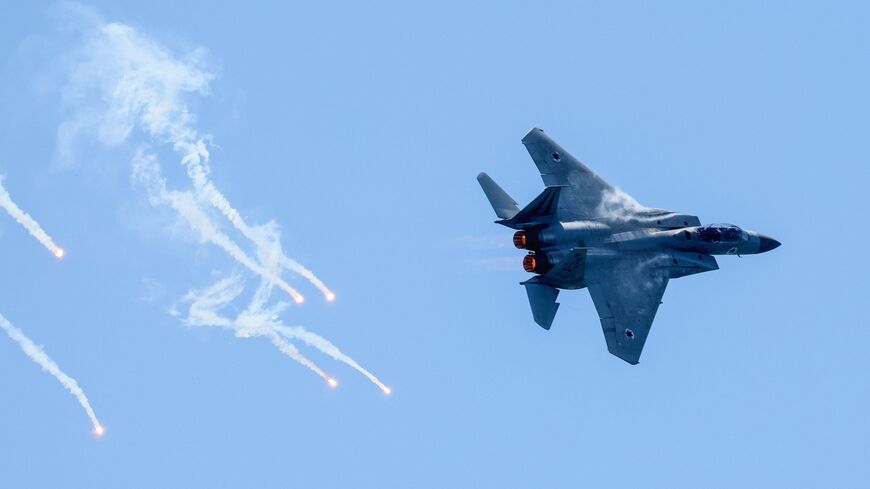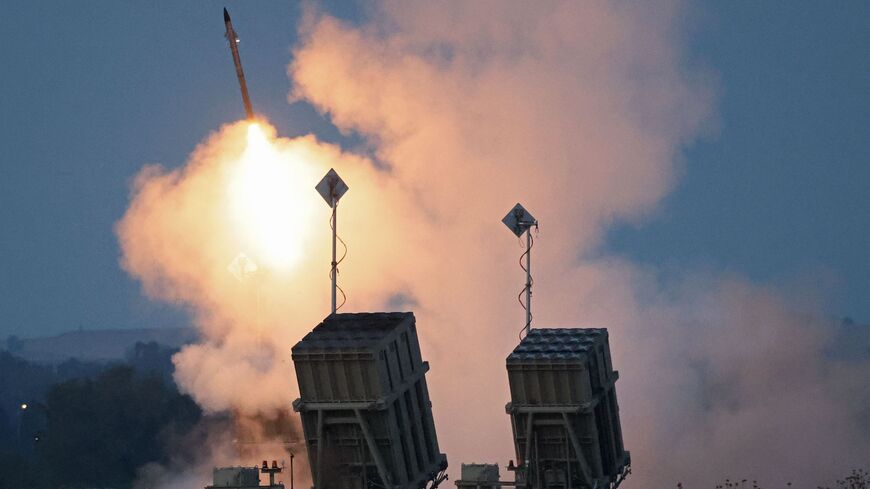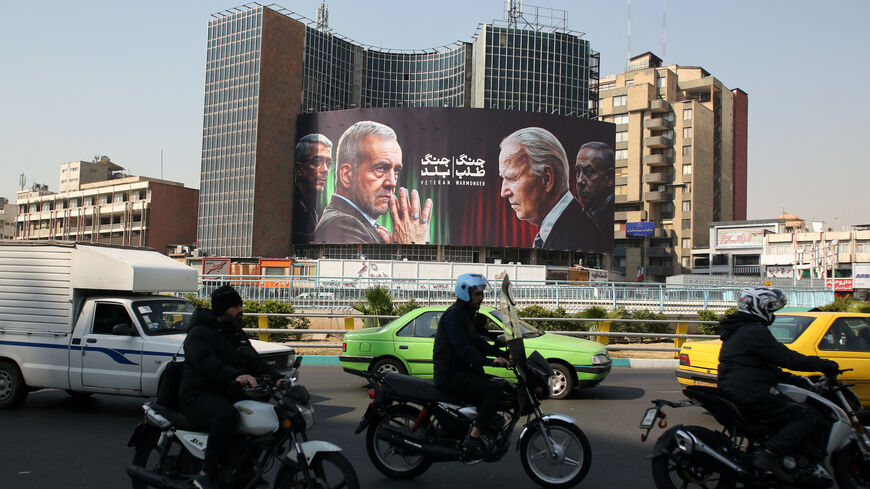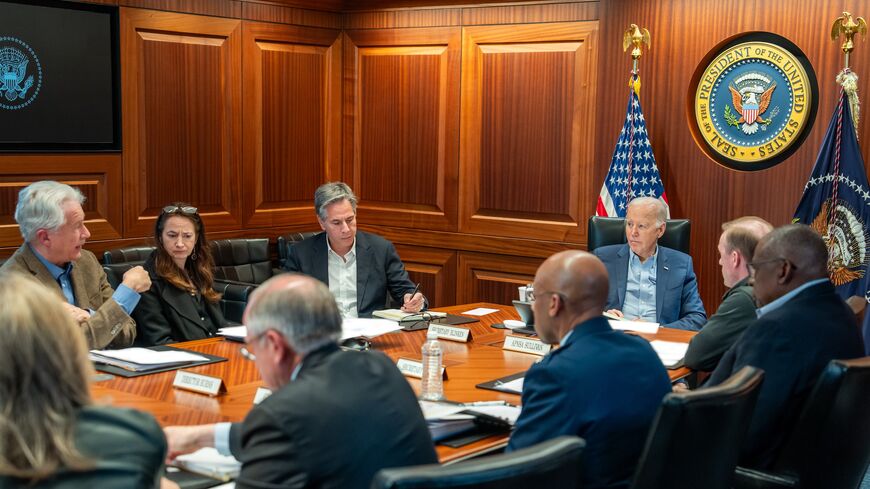Biden urges Israel to 'think carefully' as it mulls response to Iran attack
The United States has told Israel it won’t participate in any counteroffensive against Iran, senior administration officials said.
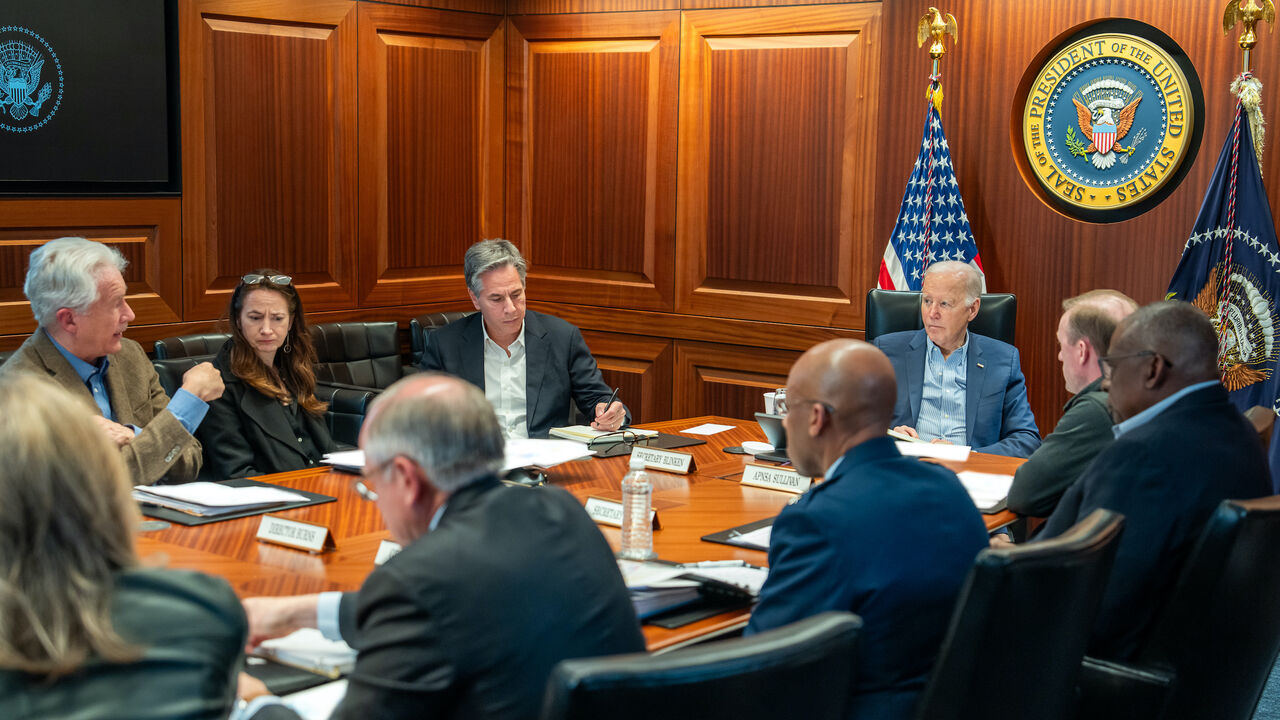
WASHINGTON — President Joe Biden cautioned Israeli Prime Minister Benjamin Netanyahu to “think carefully and strategically about the risk of escalation” as Israel weighs its response to a brazen Iranian attack that the United States fears could trigger a broader regional war.
Biden and Netanyahu spoke by phone hours after Iran launched more than 300 drones and missiles at Israel Saturday night into Sunday morning, nearly all of which were intercepted by Israel’s multilayered air defense system with the support of the United States and other allied militaries.
The United States will not participate in any Israeli military reprisal against Iran, whose thwarted missile barrage Biden framed as a win for Israel that underscored ironclad American commitment to its ally, a senior administration official briefing reporters said.
“The president told the prime minister that Israel really came out ahead in this exchange,” the official said on Sunday, adding that Israel “clearly demonstrated its military superiority.”
The attack on Israel — Iran’s first ever launched from its own territory after a yearslong shadow war — came in retaliation for an Israeli airstrike on an Iranian diplomatic compound in Damascus on April 1 that killed two senior Islamic Revolutionary Guard Corps (IRGC) generals and several other IRGC members.
The senior administration official said Iran intended to be “highly destructive” on Saturday but failed to inflict significant damage in Israel. There were no reported casualties, although a 7-year-old Bedouin girl was seriously injured after being hit by shrapnel from an intercepted missile. A military base in southern Israel also sustained minor infrastructure damage.
“If successful, this attack could have caused an uncontrollable escalation,” the senior administration official said, adding that the Israelis have said they are not looking for "a significant escalation with Iran."
Analysts, however, said the attack appeared calibrated to avoid a major Israeli response.
Ali Vaez, the Iran director of the International Crisis Group, said the main Iranian objective was to restore a degree of deterrence without provoking a wider regional conflict that would draw in the United States. The fact that Tehran did not deploy its most powerful proxy, Lebanese militant group Hezbollah, demonstrates its “reluctance to sacrifice its strategic assets,” he said.
For two weeks, Iran had telegraphed that it would retaliate over Israel’s deadly strike in Damascus. In anticipation of an Iranian attack, the US military had moved aircraft and ballistic missile defense destroyers to the region.
“Iranian retaliation was not a surprise to Washington and Israel,” said Vaez. “That was by design. The Iranians wanted to ensure that this attack was not fully successful.”
The United States and Iran lack diplomatic relations but use private channels to communicate, including the Swiss Embassy in Tehran, which represents US diplomatic interests in the country. As the attack was ongoing, the Biden administration received an Iranian message via the Swiss “basically suggesting that [the Iranians] were finished after this,” the administration official said.
“Our goal remains to de-escalate immediately and halt any further attacks,” another administration official said. “We do not seek conflict with Iran.”
The unprecedented attack comes days before Iranian Foreign Minister Hossein Amir-Abdollahian is expected to travel to New York for the UN Security Council’s April 18 meeting on Gaza, where health officials in the Hamas-run enclave say the Palestinian death toll has surpassed 33,000.
Iran’s Mission to the United Nations said on social media Saturday that its aerial attack was justified under Article 51 of the UN Charter, which provides for the right of self-defense. The mission said the attack was “deemed concluded,” but “should the Israeli regime make another mistake, Iran’s response will be considerably more severe.”
The UN Security Council held an emergency meeting Sunday afternoon upon request from Israel, which wants the UN’s top body to condemn the attack and designate the IRGC as a terrorist organization. US deputy ambassador Robert Wood told the council that the United States will work with other member states to "explore additional measures to hold Iran accountable" at the United Nations over the coming days.
Biden and the other leaders of the Group of Seven nations unanimously condemned the attack during a virtual meeting on Sunday and discussed imposing coordinated sanctions in response, the senior administration official said.
The president also discussed “the broader regional situation” during a call with Jordanian King Abdullah on Sunday, the official said. Jordan reportedly opened its airspace to US and Israeli planes, and its air force shot down dozens of drones headed from Iran to Israel.



